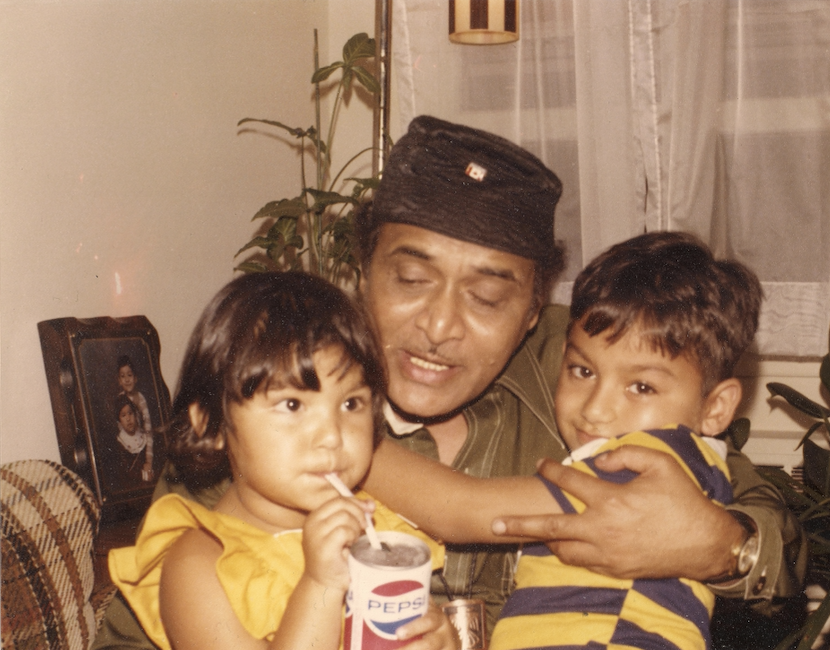
We introduce ourselves today at a pivotal time in U.S. and global history. We don’t want the next 4 years to look like the last 4 -- or 400.
URL Media is a network that links community media to big media, broader audiences and sustainability. Sara Lomax-Reese and I are co-founders.
We met three years ago. She, the head of a Black talk-radio station in Philly. Me, a CNN executive in New York. Her organization had a sense of community and authenticity. Mine had reach and revenue. We needed each other.
This past summer, as the country protested and this time seemed really different somehow, we came up with the idea of joining forces. We have been working on these issues our whole lives and careers; how to amplify that work and include others felt a bit now-or-never.

Around the same time, Sara and I were on a panel together. At one point, Sara proclaimed racism a disease of the heart and called on newsrooms to love more.
In 20+ years in mainstream media and the last half of that mostly in digital, I’ve heard reams about the loss of trust, vows to be more “audience-facing” or “user-centric,” and the shift to “direct-to-consumer.” But love? Never came up.
The idea became a founding pillar of our company and how we want to work.
I've thought about what the next chapter of media should look like and my role in it. I've studied subscription businesses and thought about their application to diverse audiences -- and existing examples of success, many of whom join us on this journey. Their model: Create something of value, something that uplifts a community, and they will turn to you, trust you, and maybe even pay for it.
I've also thought about what I wanted to create for my kids and other kids to feel seen and heard, and, yes, loved. I thought that no matter who won in November, that there had to be a different way to do journalism than the way we had been doing it. I thought about objectivity in journalism and whose lens prevails and the need to respect and center other voices, OUR voices, more than ever. I worried about starting something new, especially focused on race, that didn't firmly hold hands with those who have been doing the work all along.
And that’s how URL Media was born. Uplift. Respect. Love. More than an acronym or slogan but truly the mission we have outlined for ourselves, our users, our partners, our vendors, our staff, our advertisers and sponsors, the many communities we serve.
About the network: Our intention is to share content with each other and leverage each other's authentic storytelling, multiplatform nature (audio, video, article, newsletter, messaging) and collective reach to amplify important work. More on us here on our beta site. And Axios' Russell Contreras had the scoop this morning.
Think it's hard for niche content to break through? Do we have another choice? Presented without comment:

Our hope is that, together, we can break through. Our other hope is that you will hear about certain story lines sooner, from the perspective of those most affected, rooted in a sense of place, people and purpose. Speaking of, I’m honored to type these words on the platform of a partner, ScrollStack. I’ve been posting here since its launch and love the global view, ability to serve users across multiple geographies, currencies, languages and the many delightful niches I discover within. (I’m also lucky to have partnered with Scroll years ago on the launch of Quartz India.)
The other network partners are:
I see magic in each partner but I have to share one story that informs URL's founding: The June primary in New York for my district's Assembly seat was a crowded one (see below). I received a text message from a neighbor to watch this debate on Facebook.

It was like no local debate I have ever seen before, and subsequently forced me to reimagine the media's role in elections. TBN24's interest in the race might have been initially stoked by the fact that a Bangladeshi taxi driver and labor organizer Joy Chowdhury was a candidate. But moderators asked questions from the perspective of Uber drivers, small businesses, COVID victims. The discussion was relatable; see more on the station's approach here. They forced policy to get personal and precise. I want us to be able to do this across communities, across the country. And so I reached out to anchor Habibur Rahman and have not left him alone since.
Our own organizations, in Sara’s case WURD and mine Epicenter, are inaugural members, too. We figure if it helps us, it helps everybody. This duality (member and president, like that old hair club for men commercial) keeps us firmly grounded in our communities instead of trying to impose top-down coverage approaches or views from nowhere.
We believe we offer a huge value proposition by working together. Trust in media is low, diversifying newsrooms and their content will take forever (maybe never), and there’s only so many Substacks you can subscribe to (but you should subscribe to our newsletter, of course). Meanwhile, ad spends on Black and Brown media are growing.
For the next few months, we will focus on sharing our content with each other -- and with you. Sign up for updates and our newsletter. Follow us on social media, namely Twitter and Facebook.
And keep in touch. We love you.
-30-

















Write a comment ...